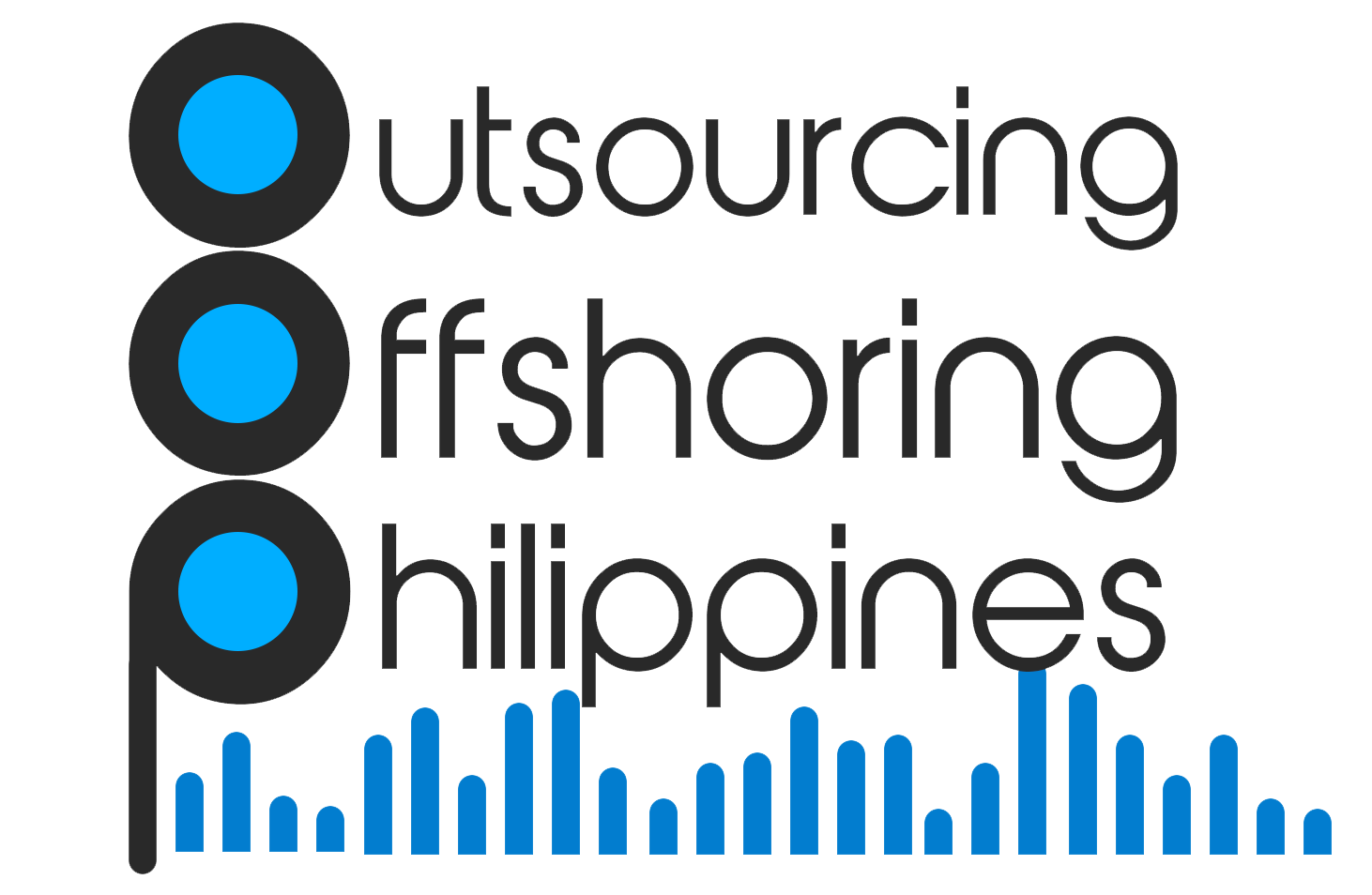 Guest: John Jonas
Guest: John Jonas
Presenter: Toby Longhurst
OnlineJobs.ph creator John Jonas joins us in this episode to share their story on how they help remove the middleman and directly connect the employer in need of virtual assistance with the employee.
OnlineJobs.ph is the world’s largest website for finding Filipino virtual assistants. The online job board currently has over 500,000 Filipino resumes and over 100,000 employers from around the world using it.
Since hiring his first virtual assistant in 2006, John believes that OnlineJobs.ph offer Filipinos the opportunity to work from home, earn a decent income, enjoy a generally higher standard of living, and raise their children by themselves which is a luxury most Filipino parents don’t get to do.
Transcript of the Interview:
Toby Longhurst: Hello and welcome to the Offshoring and Outsourcing Philippines podcast . I am your fill-in host Toby Longhurst and joining us on the show today, we have a very special guest, the founder of onlinejobs.ph, John Jonas. John welcome to the podcast.
John Jonas: Yeah, thanks for having me.
Toby: Our pleasure. So tell me about onlinejobs.ph, how long have you been around? How did it start?
John: So we launched in 2009, I started in 2008 kind of out of necessity for myself because I had kind of stumbled into this amazing talent pool that most people didn’t know about and there wasn’t a great way to find people at the time. I mean I was in the US, and I still am and to find someone, I had to go through a service and they would give me one option and it was just frustrating and so I wanted to be able to find more people and I thought like “Hey let’s put up this website, I’ll use it and maybe we’ll get a couple of hundred profiles on there and it’ll be awesome.” And I had no idea that it would just go crazy and we would have a couple of hundred profiles in the first month and we would have over half a million profiles today and it grows every month.
Toby: Who is on the site? What type of people are you getting, joining the site?
John: So from the worker side, the job seekers, obviously it’s just the Philippines so online workers in the Philippines or people who want to work online and the talents are anything from like you have zero talent and don’t speak great English and your rate is USD$300 dollars a month for full-time work up to like you’re an amazing programmer with 20 years of experience or you have eight years of experience in Facebook advertising like since the day it came out, to like super advanced marketing copywriters and everything in between. So we have basically any skill that can be done on a computer, you can find on our website from someone. The other side of that is that’s the workers, the employers are all over the world, number one. They are usually running an online business but not always like we have a lot of realtors or insurance agents or doctors and lawyers hiring on our site or like Google or Uber or companies like that that have used us to hire. So we have small and big businesses, most of our customers are small, small businesses or entrepreneurs and then they’re hiring these people to do all kinds of stuff. They’re hiring their workers to do data entry or manage their social media or build a website or do this custom programming or design work. I mean there’s the whole gamut of anything that can be done in a computer is being done or on the phone I guess.
Toby: You set this up really for yourself to see what could happen. Hopefully somebody might join and then all of a sudden, all of these people joined. How long did it take for you to go from being an idea that could work for you to being your actual job?
John: So at the time in 2009 when we launched, in 2008, I was teaching kind of on a small scale, how and why to hire people in the Philippines. I mean today you’re running a podcast, I was doing webinars teaching and even like tele-seminars in 2006, 2005, 2007 – teaching about the Philippines because it’s such a great place for outsourcing and nobody had kind of realized that yet and so I was teaching on a small scale and then it was growing and I was hiring someone at the time when I decided to do this and I had some customers that wanted to hire too and so how long did it take to go from like an idea to like feasible? Well it took like one month because I wanted to hire someone and I had customers that I was teaching how to or why to hire people in the Philippines and they wanted to hire people and the only option like I said at the time was to go through a service and so immediately there were people looking to hire and as soon as people in the Philippines realized “Oh there’s people looking to hire,” even if it was like ten people, they all told their friends and it kind of went viral and we had hundreds of profiles in a month and then like thousands of profiles within a couple of months.
Toby: So how are you making money on it? Are you running through advertising through the site or you get a little bit of a cut off people who are paying to advertise or to look or to post jobs?
John: It’s free for workers, we don’t take a cut off salaries. We’re kind of like a job board like indeed.com or careerbuilder.com here in the US. Employers pay to post a job. They pay a fee to post a job or they pay a fee to contact workers that they find in the database. There’s two different ways to use it – you can either post a job and let workers apply and then you filter through them and interview or you can start by contacting workers that seem to have resumes that are relevant to you, to what you’re looking for and see who replies to you. So an employer would pay for either of those things and then once they hire someone, they’re done with us and they would cancel, it’s a monthly subscription just depends on how long you’re recruiting so when you’re done recruiting, you cancel and that worker works for you and outside of us and we don’t monitor it at all so you kind of get the best of all worlds of being able to find the person you want and not having to pay a marked up salary, not having a third party involved.
Toby: You were saying before that years ago, people didn’t know that the Philippines was a great place to outsource and it is a great place to outsource but today there are so many options at every different level from high-end boutique agencies to job boards, fully managed services. Why should people be going to OnlineJobs.ph when they want to find stuff in the Philippines?
John: So there’s different people at different stages of their businesses. I don’t know why Google came to us to hire, I don’t know why Uber is posting jobs on OnlineJobs, other than we have a huge database. But for most people, what we find is that customers only flow one direction and we almost never find someone who finds OnlineJobs and then goes to a boutique to hire someone. They don’t find OnlineJobs and then go to UpWork, they don’t find OnlineJobs and then go to an agency. They find an agency to hire someone and then they find OnlineJobs and they never go back.
Toby: What’s the difference?
John: So the difference is, there’s no markup of work so like if you go to like a high-end boutique, I looked at one today actually and it was like $900 US dollars a month for part-time work of a basic entry-level virtual assistant and so just like when I got started, you’re kind of taking a crapshoot with that. Like you want to hire this person, okay fine, “Hey find someone for me.” Well in my experience people are about 50% at finding people right at recruiting. If you’re recruiting for someone else, you get it right about 50% of the time. You recruit for yourself if you do a good job, you can get it right about 75% of the time. So what we allow you to do is recruit for yourself, it takes slightly more effort, your success rate is higher and then the cost difference is and okay, so the cost difference is $900 a month part-time or $400 a month full-time for the same person, right, so the cost difference is significant.
Toby: Yes, it’s huge.
John: Yeah. And that cost is significant for a lot of people, it’s not significant for some people, right, so the cost isn’t really the biggest thing but for like this guy’s full time 40 hours a week of a mid-level VA was like $2,500 a month. Well for me, a full-time mid-level of VA is like $550 a month, like the cost cause different changes. Or the other side of it is like with OnlineJobs, you can go and recruit anything you want. Like “I want a graphic designer with Facebook advertising experience.” Great. Go in and find the person. If you ask someone else to go find that person for you, it’s almost impossible just because that’s a hard person to recruit for but if you want to recruit that person, you can put in the work and recruit that person. And so that’s a big difference that I find from people is that like they get control of who they hire rather than just turning it over to someone else and saying “Hey, I want someone.” And then that person comes back to you and says “Okay, here are your two options.” “Well neither of those work for me.” “Well what do you want to do now?” Like that’s a big difference.
Toby: Alright. Perhaps let’s go through some of the practical steps. I’m a small business owner, I’m looking for somebody. Tell me if I go to your site, what are the steps I need to go through one by one? First of all, getting the ad up there and then do you have facilities through your site where I can be saving favorites or keeping track of the different candidates and chatting with them?
John: Yeah, so you come onto OnlineJobs.ph and you post a job and I mean it can take as little as two minutes, it could take as much as two days, it just depends on how much work you want to put into it. The process is really sign up for an account so you can monitor who applies to it which is just email, password and then post your job – what’s your job title, what’s your job description, those are really the only two required fields – there’s a whole bunch more that you can add like what skills are you looking for, how much you’re looking to pay or there’s a whole lot of stuff that you could do. Writing your job title and job description are probably the two most important things. Like what are you looking for? ‘Build my website’ probably isn’t a very good thing. And so this kind of gets into a difference between what we do and what other people do. With OnlineJobs, we focus more on long term work so like freelancing, people love to use the word ‘freelancer,’ hire a freelancer, hire a contractor and that’s kind of not what we focus on. We want you to hire someone that sticks with you long term so like the first person I ever hired 14 years ago, 2005, 2004, maybe 15 years ago, still works for me today in the Philippines. The guy’s amazing. He wasn’t when I started working with him but he’s amazing and so you’re looking to hire a full time person which is different than hiring a contract worker and so like you go to a boutique or to an agency or whatever and you say “Hey I want to build a website.” And they’ll say “Okay, here’s someone that can build a website.” And you’re going to use that person for a month and or they’re going to get the job done, the project done and you’re done with them and that’s it, you’re gone, right. And then when you need a change done, you have to you have to go and find someone else to do it and it’s a big pain in the but. So what we focus on instead of contract work or freelance work where that person does some work for you and then you’re gone, is hire them full time long term because as soon as you get them full-time long term or part-time long term, you allow them to care about your business and start to work on changing your business. It’s super similar to a local employer-employee relationship just without any of the problems of a local, like there’s no insurance, there’s no taxes, there’s no government, there’s none of that stuff. So back to posting a job, when you post a job, understanding kind of what role you’re hiring for is pretty important and so you’re going to need to write your description and your job title pretty. Well so there’s there’s one side of it, you’ll get started, you’ll post it and you’ll get responses within minutes or hours depending on what kind of a person you’re looking for and you might get ten responses, you might get four hundred responses, again depending on what you’re looking for. The other side that you could do is you go on and you just search, like search through profiles. Put in what you’re looking for and start contacting workers and you can sort, you can narrow down, you can look at all kinds of stuff or you can say “Hey, I want someone.” You can put in a keyword ‘webmaster’ or you can go in and search through skills that they have rated themselves on and say “I want someone with Photoshop and HTML and CSS skills.” Okay, well you just got six thousand people. Okay so now you can narrow it down a little bit more like what are you looking for exactly and then you contact people and start an interview with them as if they reply to you. Not everybody on the site is available for work, they’ve built a profile and then maybe they got hired and if they got hired then they’re probably not going to reply to you because they have a job and that’s kind of the culture in the Philippines, is they’re loyal. They may reply, they may not.
Toby: You mentioned earlier a couple of big names – Google and Uber – what are some of the the greatest success stories you’ve had over the years?
John: So the great success stories aren’t Google and Uber because I have no idea what they did because for me, they’re the same as the starting off entrepreneur who’s looking to hire their first person ever, right. So the best successes that we have are I talked to a guy today, he signed up for probably the sixth time in the last ten years. He’s hiring maybe more than that and he just sent me an email after he’s signed up and he said “I signed up again. Thank you so much, you changed my life. My business wouldn’t be where it is or what it is without OnlineJobs.ph.” Like you asked for one of the greatest success stories, that’s the great success story. This guy who has succeeded in business and is employing people and is helping other people succeed because he’s doing what we provided.
Toby: Yeah, that’s great. It’s so important, being able to grow and people coming back it’s a real vote of confidence in what you provide. Who are your typical clients or the types of jobs and tasks that you think are best suited to outsourcing?
John: So let me start answering that by let me tell you the jobs.
Toby: Sure.
John: So I have 24 people that work for me full-time in the Philippines, they they work on OnlineJobs.ph, all of them. They do programming and design like graphic design for advertising or for just graphics, whatever we need. They do artwork, they do web design, they do webmaster work, custom programming, they do social media, they do content writing, they do admin work, they do customer support, they do back-end maintenance of our data, they do system admin, they do project management. And we have customers that are hiring telemarketers, we have customers are hiring data entry people, so again anything that can be done on a computer can be outsourced. The type of businesses is literally all over the map. I mean the average person is an entrepreneur, a small business owner but like I see people every single day with realtors, lawyers, medical offices, lawn mower repair shops that are trying to do SEO and hiring someone or trying to do data entry or trying to do lead generation. The one thing that we don’t do super well at is telemarketing. We get a lot of people coming and we a lot of people probably hiring people to do telemarketing, they’ll hire them and give them a Skype account or maybe a vonage phone or something else, I don’t know, and have them make phone calls from their house, upgrade their internet and use the internet to make phone calls but typically I don’t have much experience with that and so people will come to us saying “Oh I expected you to be a call center.” And we’re not, we don’t do a lot of that but outside of that, if it can be done online, people are doing it.
Toby: Exactly. And where are your clients coming from? Are they predominantly American or are they coming from all around the world?
John: They’re all over the world. Less than half of our customers are in the US, so Australia, the UK, Canada, all over Asia, we actually quite a few customers in the Philippines who use us, all over Europe. I’ve had customers in Brazil and Uruguay and Venezuela. Yeah, we have customers all over the place.
Toby: That’s great for you, it gives you such a great reach. But one of the things that I think many people are a little wary of when they start outsourcing is that sure, this person, they might understand the field, the Philippines has excellent English but do they understand the culture? And often the case, is no but they can be taught so it’s not really a problem but what I’m getting at is that we’ve seen a lot of people who have outsourced really successfully but for some people for one reason or other and sometimes culture sorry the part on this, it hasn’t worked for them. You’ve seen all of these people be successful, what tips would you have for people who are looking at outsourcing to get the most out of it and to ensure that it is successful?
John: Yeah, that’s such a good question. So well I’ve seen a lot of success, I’ve seen a lot of failure too. And so when you say what what do what do I suggest so that you succeed, let me tell you a story of failure. So I don’t often get a VA that I know is good, that’s available for hire because if someone’s good, that person is they’re working full-time for someone and that employer doesn’t talk about how good their VA is, right. They don’t go out and publicize this, that’s like a local company doesn’t doesn’t publicize online “Hey, I have a really great CFO. Please hire him from me.” But every once in a while I get someone that says “Hey my business has changed and I would really love to find this person another job because they’ve been so amazing for me and I can’t use them anymore,” right and I had that happen one day where I had this really really great VA. In the same day I also had a CEO of a company come to me and say “Hey I would really love to hire someone but I don’t have time to do the recruiting and so if you can find someone for me, if you know someone.” And it just happened, the stars aligned, of that he was looking for the exact person that this other guy had just told me about. So I set the two of them up and like three days later, the employer, the CEO emailed me and said “This doesn’t work. This VA is terrible.” And I was like “What the heck? What happened?” “Well I asked her to do something and she didn’t do it and it didn’t get done and it wasn’t right and everything was wrong.” I was like “Wow. I mean you put no effort into this relationship at all. You gave her no training, you had zero tolerance for anything, zero patience with anything. I know this worker was good.” So that’s the answer to your question, is this doesn’t play games with robots. That’s what I think a lot of people think, well they think “Everything’s going to be done perfectly the first time or I’m just going to fire them.” And I think that’s what that CEO did and wanted, he just wanted everything done right the first time. He didn’t want to deal with anything ever, it had to be perfect. That’s not usually the case so if you can prepare yourself to say “Hey, I’m going to hire this person.” They’re going to be super affordable, I think that girl was working for like $525 a month and was super talented and you’re getting a super affordable human being that has a brain and can think and who’s willing to think as long as you put some work into the relationship. Often we think “I don’t know if I can trust that person” and in the Philippines they think “I don’t know if I can trust this boss.” And until they can trust you, very often they won’t do their best work because they’re scared and so you have to put some work into this relationship to get the best work out of them and if you do put that work in, it’ll pay off a thousand times for years and years and years and they’ll do great work. You just have to put some work into the relationship.
Toby: Over the years of doing this and speaking to people who have been successful, have you seen any common tips, of common things that they have been able to do? Obviously put the work into it but in terms of actual things.
John: Yeah, so successful employers often recruit well. Meaning they put in effort into their recruiting process. They send lots of emails back and forth before hiring someone, they put a little bit of work into their job description and their title. Often they’ll create like a survey, maybe it’s just a questionnaire like with Google Forms or something where they have the person who’s applying fill out a bunch of information and that’s partly how they weed through applications. Once they’ve hired someone, so I’ve done probably fifty case studies over the years and they’re always super similar. The concept is “I treat this person really well. When they have a hard time in life, I accept their hard time because life is hard in the Philippines. They didn’t show up to a meeting and they sent me an excuse later on and I get it. So it’s okay as opposed to I fired them because they were late.” They often require a daily communication rather but they’re still lenient with that like “Oh you didn’t communicate with me today because your internet went down, okay I get it.” They pay a reasonable wage, they’re not looking for the the cheapest wage that they can get away with, they’re looking for long-term help, they’re looking to build a relationship with someone that’s going to work for them long term.
Toby: It’s interesting, the pricing point. Do you have any advice for people with pricing? When Western countries are looking to the Philippines, one of the advantages is that makes economical sense because it’s cheaper and they can get the same work done. How do you think people should be pricing without paying, low balling?
John: So if you go onto OnlineJobs, you can look at profiles and see how much they want to make. And if you were to look at the same thing, let’s talk about a graphic designer, you will find a beginner a graphic designer asking for $400 a month for full-time work, you’ll find a graphic designer with tons of experience asking for $1,500 a month for full-time work and you’ll find all kinds of stuff in between. It’s pretty reasonable to figure out what people should make based on what they’re asking for and you can look and see an average of what people are asking for, just do a search and have a look. We have a couple posts that are linked, very accessible on the site about salaries and what average salaries are what average salaries are in the Philippines and what they are online and so you can get a reasonable idea of like a data entry virtual assistant is going to be different than a programmer.
Toby: Of course. It sounds like quite an easy process.
John: Yeah, it’s pretty reasonable.
Toby: So John unfortunately, where we’re starting to run out of time but before we go, perhaps many of our listeners will be – as they’re listening to this – currently thinking of going looking to get staff in the Philippines, what would be your parting message for them?
John: So I have two parting messages. One of them is it is a different experience in the Philippines versus anywhere else in the world. I’ll often get someone say “Oh I tried that.” “What did you do?” “Oh I hired this team in India.” That’s enough for me to say “Well you should give this another shot.” The second piece of advice is if you’re a medium or a big business, you don’t need to hear this, you’re going to hire someone regardless. You’re a small business, you’re an entrepreneur, so I would bet a lot of your listeners have read the 4-hour workweek. This is how you get to the 4-hour workweek is by hiring someone and I have a whole process that I talk about and teach about how to get there because I’ve been there and I’m there. I mean I work 17 hours a week instead of 4 because 4 wasn’t enough for me. But this is how you get to that 4 hour workweek, just by hiring someone and to get there, you have to try it and see. Like that CEO I just told you about, it doesn’t work for him. He was too impatient, he was to perfection-minded to have this work for him. So if this is going to work for you, you got to try it. Hire one person and figure it out. The potential downside is that it doesn’t work for you, you don’t like it whatever, you lose a couple of hundred dollars. The potential upside is you hire someone to do something that you’re currently doing in your business and you get five hours a week back and you use those to build your business.
Toby: Excellent. John, thank you so much for joining us today on the Outsourcing and Offshoring podcast.
John: Yeah, thanks for having me.
Toby: Thank you for listening to the Offshoring and Outsourcing Philippines podcast. For more great podcasts with outsourcers all around the Philippines, please visit us at offshoring.com.ph. Find us on iTunes, SoundCloud or TuneIn.



